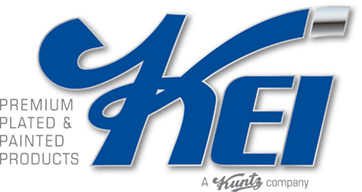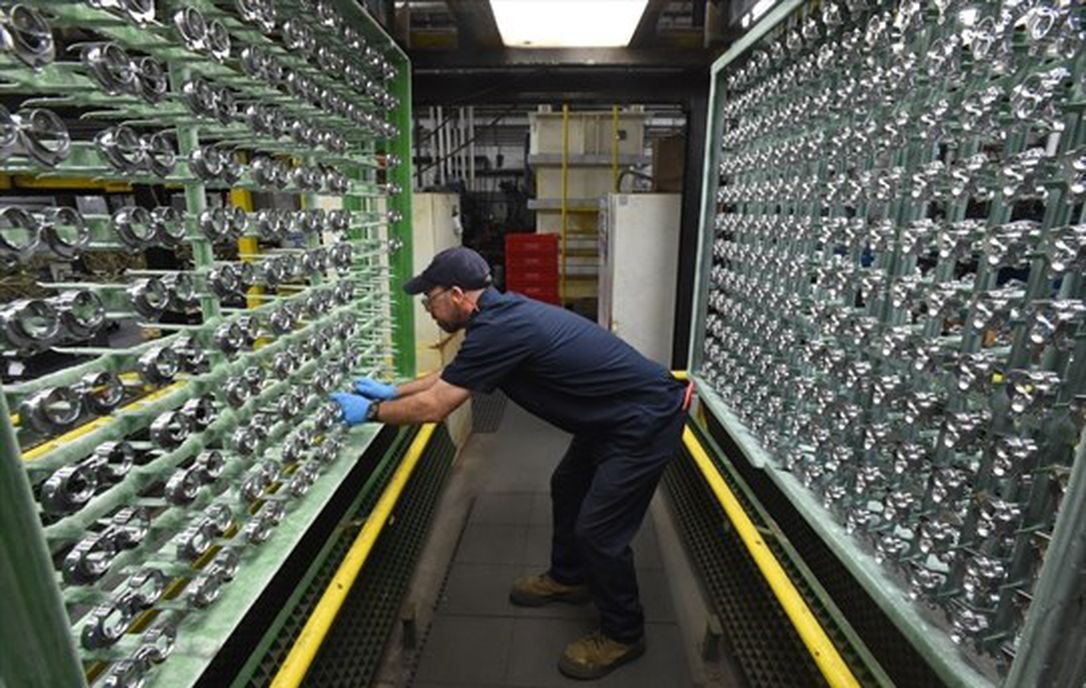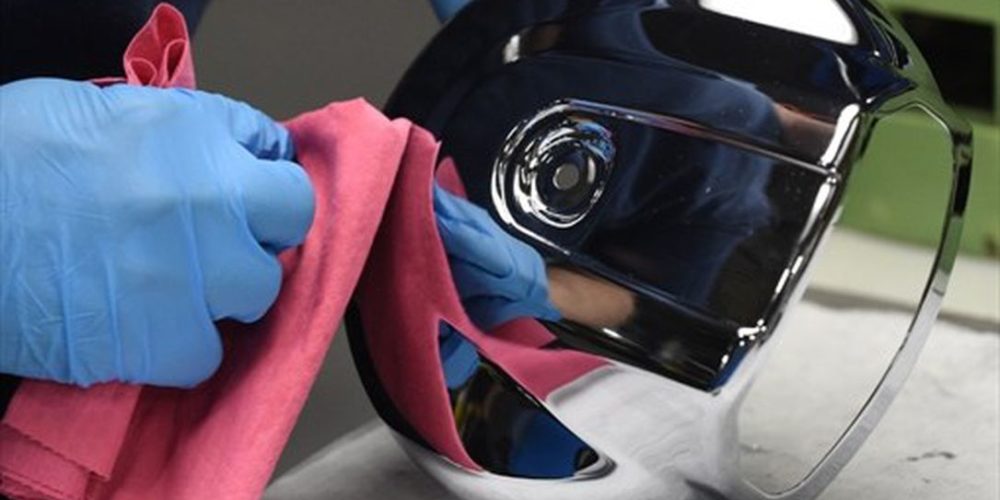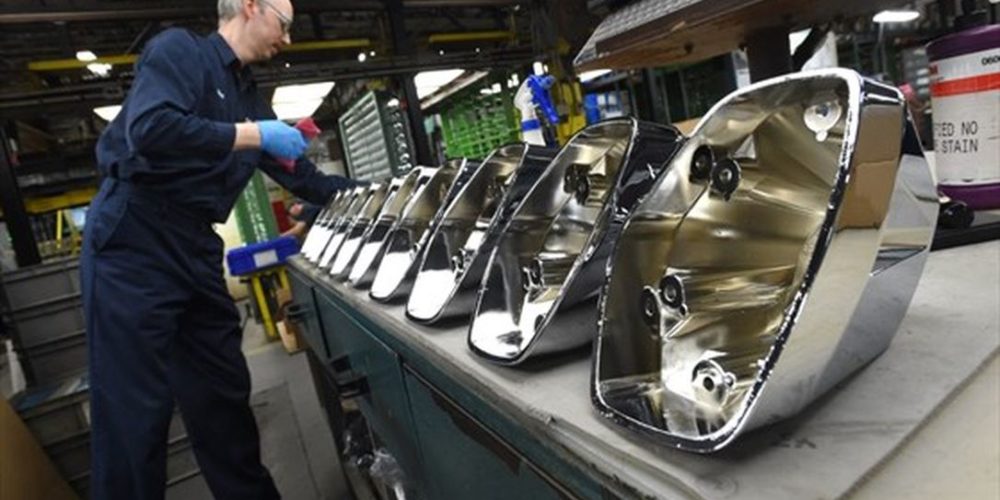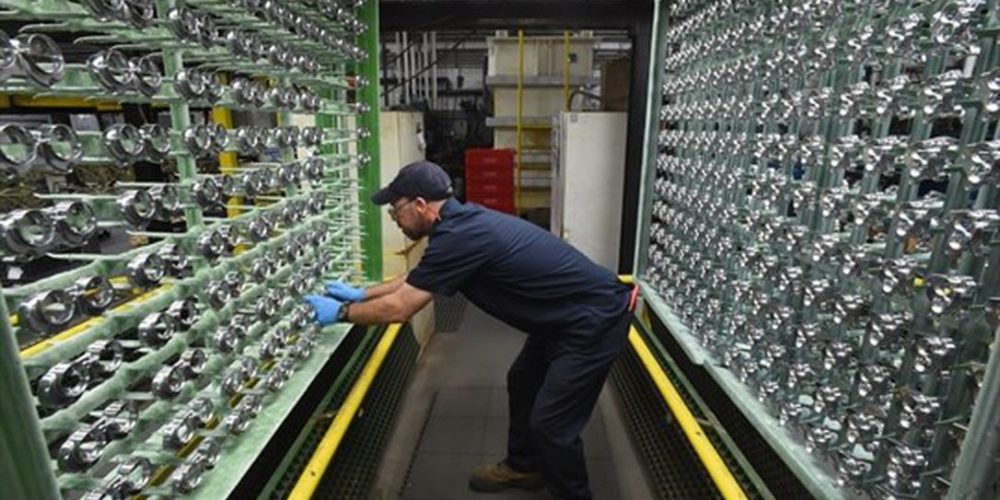KITCHENER – Resilience, innovation, agility and adaptability are essential qualities for any successful manufacturer today, says an executive with one of Waterloo Region’s oldest firms.
“Failure to adapt and evolve will lead to failure,” Michael Kuntz, vice-president of sales, marketing and account management at Kuntz Electroplating, said Tuesday at the Greater Kitchener Waterloo Chamber of Commerce’s annual Manufacturing Summit.
Kuntz Electroplating employs about 500 people, down from a peak of about 1,400 in the late 1990s. It ships 100,000 components a week from a 500,000-square-foot plant on Wilson Avenue.
As markets and technology changed, so did the 68-year-old company.
“We are what I would call an advanced manufacturer,” Kuntz said. “And I think it is probably inevitable this summit will be called the Advanced Manufacturing Summit one day.”
If your company is not in a specialized, niche market using innovative technology, it is difficult, if not impossible, to compete in today’s manufacturing landscape, he said.
Kuntz illustrated the importance of the four qualities he cited by talking about his personal experience in the business of providing premium plated products. In the late 1990s when he was starting at the firm, the family business relied on chrome bumpers and chrome wheels.
“We were shipping between 60,000 and 80,000 wheels a week,” Kuntz said.
Each new part had to be buffed by hand. That was time consuming and expensive. At that point, the company employed 1,400 people. “There was some denial that chrome wheels would never go away,” Kuntz said.
But along came a plastic product that was applied to wheels and it looked just like chrome. “It nearly put us out of business,” Kuntz said.
The bumper business was tanking at about the same time. But Harley-Davidson wanted Kuntz Electroplating to do chrome-plated parts for its motorcycles. When Kuntz brought this proposal to other senior managers, there was some pushback, he said.
It was not the conventional automotive work the company did. And the parts were aluminum die castings with a different substrate than metal parts. “It was a pretty steep learning curve for us to learn how to do these kinds of parts,” Kuntz said.
“But then I recognized early on that any customer with a motto ‘Chrome is king’ is probably a good partner for us,” he said.
Ultimately, the company learned how to chrome plate the parts and now Harley-Davidson is its biggest customer.
At the same time, it was working hard to automate polishing because the job was so labour intensive. There was no way Kuntz Electroplating could compete with factories in Mexico and China on labour costs.
“Today, 80 per cent of that process is automated,” Kuntz said. “We have a full-time automation team with highly skilled programmers.”
Kuntz thought that European technology that polishes prosthetic knee, hip and elbow joints which are implanted inside the human body could be adapted to work in the electroplating business.
The company partnered with an Italian firm that made the technology. It also partnered with the University of Waterloo, Conestoga College and McMaster University to find new ways to polish chromed products.
“Now we are building our own robot cells,” Kuntz said. “We take some of those components from Europe still, but we are able to put them together, and now we are at the point where we can build those cells.”
When recession hit in 2008, about 70 per cent of the company’s business was automotive, and that was cut in half in nine months. The company employed 900 people at the time. Kuntz said he was preparing his resume for a job search because the company came close to shutting down.
“But it was the resilience of our business, and our employees and the commitment we made to learn that really got us through that period,” he said.
Ontario manufacturers cannot compete on price alone, but must add value through innovation and technology, he said. Managers and workers must be agile enough to quickly adapt.
“Complacency in manufacturing kills,” Kuntz said.
